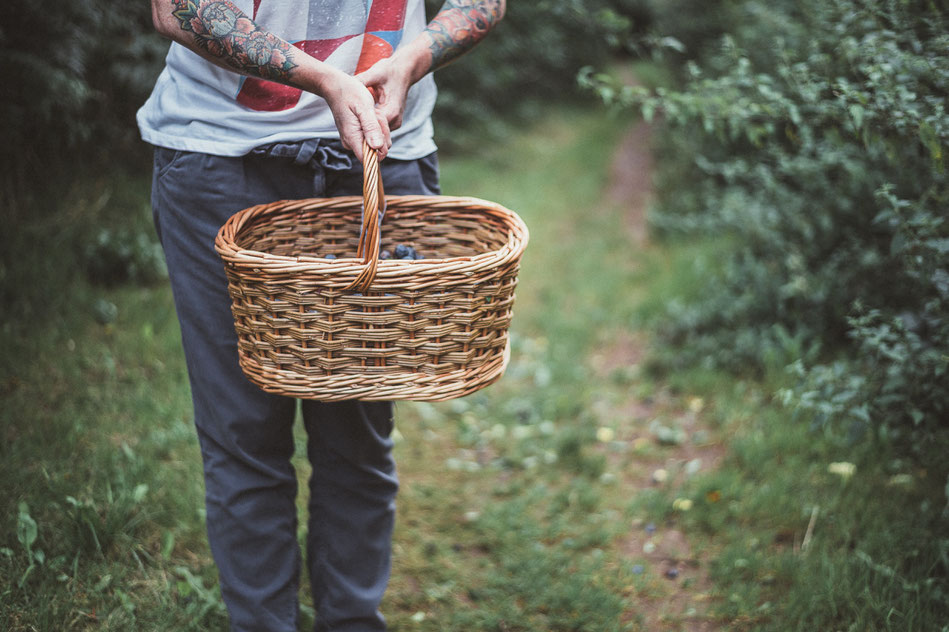Plastic bag ban in 2022: These are the sustainable alternatives to plastic bags
Reading time: 8 minutes
Today, single-use plastic bags are considered one of the biggest environmental sins of all. They are littered on beaches and in forests, but you can't get past the bags on the street either. Yet something has been happening in Germany for several years now: in 2016, many stores began charging a fee on their plastic bags and offering their customers more and more sustainable alternatives alongside the classic plastic bags. In 2018, however, every German still consumed an average of 20 plastic bags per year.
At the end of last year, the German government passed a ban on plastic bags - scheduled for this year. Everything you need to know about the new ban and what alternatives you can use instead, we have summarized for you in this article.
Why and when exactly are plastic bags to be banned in Germany?
As already indicated, single-use plastic bags are a devastating problem for the environment. On average, a bag is only used for about 20 minutes before it ends up in the trash - or carelessly in nature. The consequences: The bags become a danger to marine life, which gets caught in them or mistakes them for food. But the bags can also cause problems on our roads when they release small plastic particles into the environment until they completely decompose after several decades or even centuries. What exactly the consequences are when microplastics get into the environment, we have already explained to you in more detail in this article here.
In addition, all bags used once are also always a waste of resources. First and foremost, of course, petroleum, which is needed for the production of the bags. But also the energy consumption during recycling should not be forgotten at this point.
Since 2016, many retailers have therefore voluntarily committed to only giving plastic bags to customers in return for a fee. With success: while the consumption of single-use plastic bags in Germany was still 5.6 billion in 2015, three years later it was still 2 billion, i.e. only about a third. With the ban, the ministry wants to further decimate these quantities and get all stores to rethink.
The ban on plastic bags was already passed by the Bundestag in November 2019, and is to apply from 2022. A transitional period of six months is to apply, during which stores can use up their remaining stock of disposable bags.
In addition, the ban on single-use plastic has also been passed for 2021, which is intended to reduce food and drink packaging in the to-go sector in particular or make it more sustainable.

Which plastic bags does the law cover?
The new law aims to ban plastic bags with a thickness of less than 50 microns. However, the so-called shirt bags, which are available as rolls in the fruit and vegetable departments of supermarkets, are exempt. Yet there is a lot of potential for savings there: on average, every German uses 37 sachets per year. The argument is that they ensure that products are purchased hygienically with comparatively little packaging. If they were banned, other packaging could cover the products in the future. Moreover, sustainable disposable solutions do not yet exist.
On the other hand, conventional organic (garbage) bags made from corn or sugar should also be banned, as they have been shown to be difficult to recycle and degrade. In addition, their vegetable base is often not grown organically and many pesticides are used. "Organic" here, therefore, does not equal "perfectly sustainable" and can be deceptive to uninformed consumers.
By the way, store owners will be asked to pay for violations of the law in the future: Disregarding the ban can cost up to 100,000 euros.

5 good alternatives to disposable plastic bags
Fortunately, disposable plastic bags are no longer the only option for transporting your shopping home, for example. There are some sustainable alternatives, which you can get for example at the checkout of the supermarket you trust.
1. reusable plastic and polyester bags
In addition to single-use bags, many stores now offer reusable plastic or polyester bags that pay for themselves in environmental terms after about three uses. An added bonus is that the materials used are usually recycled and therefore more sustainable than plastic bags made from petroleum. These bags are often larger than disposable plastic bags and are therefore particularly suitable for carrying the week's shopping home from the supermarket. Polyester is a good alternative here, as the bags are not only very light, but also stand out for their durability - an advantage with reusable products.
2. paper bags
An alternative for shirt bags for fruits and vegetables are paper bags. At first glance, these seem more environmentally friendly than the classic plastic bag, as they are biodegradable and easily recyclable. But appearances are deceptive here, too. The production of paper bags costs more resources than the production of plastic bags: in order to produce a similar tear strength, more material must be used. In addition, long fibers are needed for stability, which cannot be made from recycled material, so plants are needed as resources.
3. baskets and jute bags
Old but gold: backpack, wicker basket or the classic hipster cotton bag. Especially backpack and basket are, with high-quality models, a small investment, which is definitely worth it in the long run. Because they are stable, durable and not least of course practical for smaller transports of any kind. For all savings foxes, a visit to the second hand store offers itself here again. Here you can often find well-preserved models at bargain prices. Alternatively, spacious bicycle bags are also suitable for shopping for all cyclists.
Cotton bags are comparatively cheap compared to bags and the like. Whether with a statement slogan, an advertising message or simply in plain colors, it's hard to imagine streets and schoolyards without these bags. And they are a real alternative - when used several times. Because the cultivation of cotton requires large amounts of water and pesticides, which pollute the environment. You can be even more sustainable if you buy a bag that is printed with ecological colors. If you are in doubt, you can find offers for this in fair trade stores.
Our tip: Carry a bag in the most important three bags or a backpack and then use it endlessly. Hoarding at home is not good for the environment.
4. fresh nets
As an alternative to the shirt bags there are today in almost every supermarket or also in the Internet favorable fresh nets to buy, which usually consist of thin cotton. Having one in your shopping bag is a sustainable solution to the plastic problem when shopping. The only drawback is that some of the nets do not come off when you weigh them. Nevertheless, this sustainable step should always be worth a few cents more.
There are also some alternatives to small disposable plastic bags for freezing and storing food. Beeswax cloths, bread bags or even boxes are particularly suitable here. For tips on how to store your supplies without plastic cans and bags, see thisarticle at .
5. cassava-based bags
As mentioned above, conventional bags made of bioplastic are not an ideal alternative to classic plastic bags. While they resemble them in stability and water resistance, their cultivation is not exactly sustainable and they don't degrade as quickly in nature.
Our #IAMPLASTICFREE bags based on cassava starch offer a really good alternative to classic plastic bags. They also have similar positive properties, but at the same time are free of microplastics and also degrade within a short time on the home compost. In addition, you transport your purchase in the bags not primarily as advertising ambassadors, but makes your attitude to the use of plastic bags with a clear statement.
24,95€ Our petroleum-free shopping bags are biodegradable and water soluble. For everything from your local farmer's market to wholesale.
Shopping Bags
Our tip: We always have one of our #IAMPLASTICFREE bags in our backpack to be prepared for a snack attack or a spontaneous sustainable party shopping .
Avoid plastic bags and use the potential of alternatives
In some situations, you just can't do without a bag - resources or not. Fortunately, there are enough alternatives to disposable plastic bags that pay for themselves after repeated use, so excuses are a thing of the past.
If, in a pinch, you do find yourself reaching for a shirt bag at the supermarket, that's no reason to throw all sustainable thoughts overboard: Every bag has a right to exist, even if recycling doesn't always work. The keyword here is "reuse", so use shirt bags and disposable plastic bags for garbage, for the next visit to the swimming pool or as rain protection for the bicycle saddle: Reuse is better than throwing away in any (emergency) case!